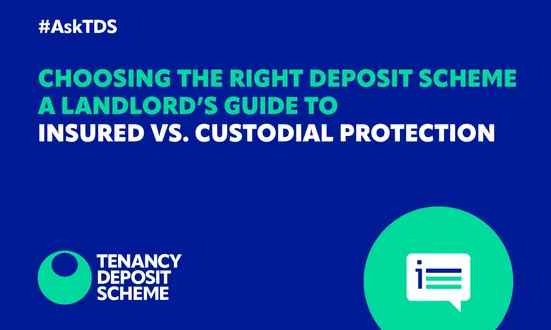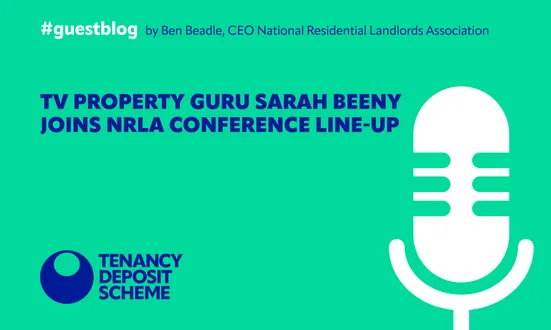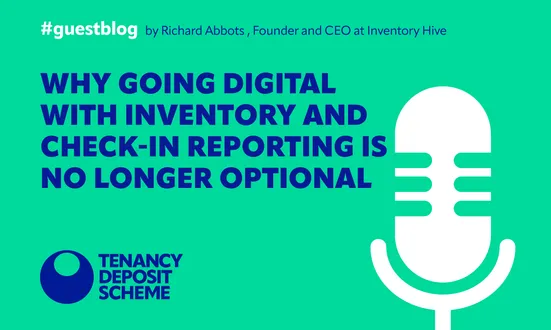If you’re renting your home and struggling with disruptive neighbours or unsettling behaviour nearby, it can be a worrying time. Here, The Tenancy Deposit Scheme helps you understand what counts as antisocial behaviour (ASB), what doesn’t, and what steps you can take if it’s affecting your peace and quiet. Whether it’s late-night noise or more serious harassment, knowing your rights and how to report problems is the first step toward finding a solution.
What is antisocial behaviour?
Antisocial behaviour refers to actions that cause (or are likely to cause) harassment, alarm or distress to people outside the offender’s household. In a tenancy setting, this often means repeated or serious disruptions that affect neighbours or the wider community.
Examples of antisocial behaviour include:
- Threatening or using violence
- Abusive or insulting language
- Damaging or threatening to damage someone’s property
- Playing loud music at inappropriate times
- Late-night disturbances, visitors, or ongoing excessive noise
- Graffiti on buildings or walls
- Ongoing neighbour disputes, arguing, or shouting
- Racist, sexist, or other discriminatory behaviour
What isn’t considered antisocial behaviour?
Not everything that causes a nuisance is legally classed as antisocial behaviour. Everyday living sounds and minor annoyances -while frustrating – usually don’t meet the threshold.
Here are a few examples that typically wouldn’t be considered ASB:
- Children playing outside
- Babies crying or family arguments within a home
- Cooking smells
- Doors closing, footsteps, or stairs being used
- One-off celebrations like BBQs or birthday parties (unless extremely disruptive)
- Lifestyle or cultural differences
- Putting bins out on the wrong day
- Parking disputes (unless aggressive or threatening)
If you’re unsure whether what you’re experiencing is antisocial behaviour, a good question to ask is: Is this behaviour persistent, threatening, or causing serious harm or distress?
What should I do if I’m experiencing antisocial behaviour?
If you believe you’re experiencing antisocial behaviour, there are several steps you can take to try and resolve it:
1. Keep a record
Start by noting down what’s happening; dates, times, what was said or done, and how it affected you. If it’s safe and legal to do so, you can take photos or record noise as evidence. This will be helpful if you need to escalate things later.
2. Speak to your landlord or letting agent
Let your landlord or agent know what’s happening. Ideally, contact them in writing (such as by email) so there’s a clear paper trail. Attach your evidence or diary notes and explain how the behaviour is affecting you.
Landlords have a duty to take reasonable steps to deal with antisocial behaviour in their properties, especially if the person causing it is one of their tenants. They may speak to the tenant involved, offer mediation, or in serious cases, begin eviction proceedings.
3. Contact your local council
Your local council can also help, especially in cases involving persistent noise, vandalism, or threats. Councils have dedicated ASB teams who can investigate complaints and, in some cases, take legal action. You can find contact details on your council’s website.
4. Get specialist support
If the situation is ongoing and you need advice or support, ASB Help is a free, independent service offering guidance to anyone experiencing antisocial behaviour. They can help you understand your rights and how to take further action if needed.
Stay calm and keep communicating
If your landlord or letting agent isn’t responding to your concerns, or you feel your complaint hasn’t been handled fairly, you can raise the issue through the Tenancy Redress Service. It’s a free and impartial service that helps tenants resolve mid-tenancy disputes with their landlord or agent without going to court.
Dealing with antisocial behaviour can be stressful, but staying calm and keeping clear records will help. Landlords, letting agents, and councils all have processes in place to help resolve these issues, you don’t need to handle it alone.
About TDS
The Tenancy Deposit Scheme is part of The Dispute Service (TDS), the largest tenancy deposit protection (by value) and resolution service provider in the UK making life easier for tens of thousands of agents, landlords, developers, and millions of tenants and homebuyers.
Our award-winning customer service is highly rated on both Trustpilot and Google, and we’re backed by the NRLA, Propertymark and RICS.
We provide quick and hassle-free online deposit protection, free guides and information in our online help centre, free dispute resolution and free mid-tenancy mediation for tenants and landlords.
Our free tenant lifecycle app, tlyfe, makes renting smarter. Manage your TDS deposit, get pre-qualified, build your credit ratings, and more.


